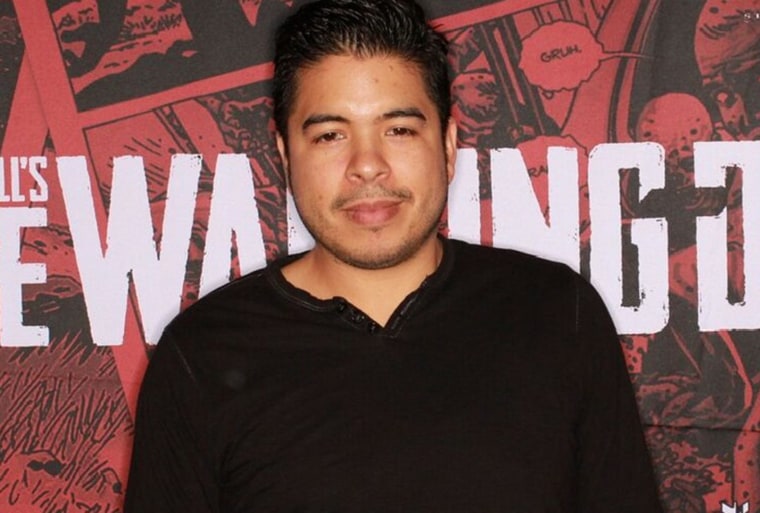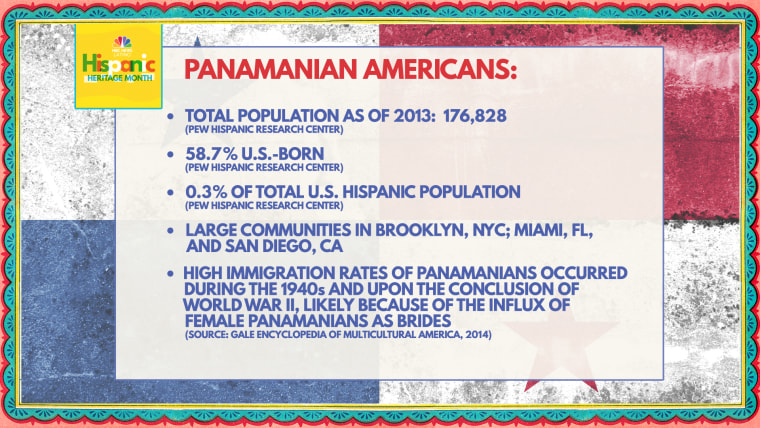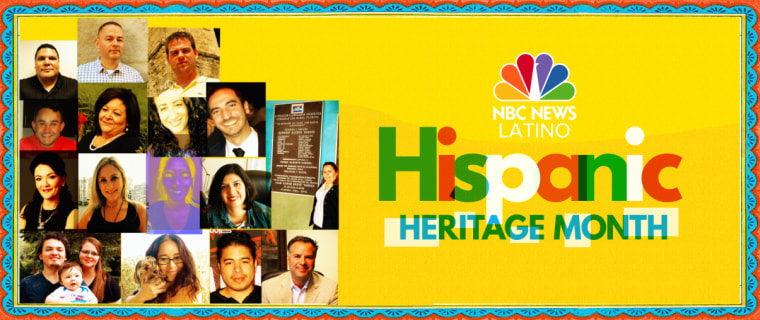This is part of our Hispanic Heritage Month series, "Our Latino Heritage," where we are profiling a U.S. Hispanic from each of our Spanish-speaking Latin American and Caribbean homelands.
When you have a name like Quibián Salazar-Moreno, every time you introduce yourself to someone new, it’s an opportunity for a short lesson on the early history of the country that links Central and South America.
“My dad named me after the chief man in Panama who led a revolt against Columbus when he brought his men to explore Central America,” Salazar-Moreno explained. “He was captured, tied up and put in a boat but Quibián escaped by jumping into the river and they never saw him again.”

Salazar-Moreno, who was born in Panama but raised in the U.S., came to this country with his father, a U.S. Army Veteran. He spent most of his life in Denver, Colorado.
“When I was younger I think people just assumed I was Mexican,” Salazar-Moreno recalls. “And I don’t remember very many Latinos, though there were probably a few.”
Fitting in had its difficulties, even at home.
“After my mom died in 1983, my grandmother came to live with us and she didn’t speak any English,” Salazar-Moreno said. "And my dad, at this point, wanted to become more American. He really wanted us to assimilate and he said there was to be no Spanish for us kids in the house, so we had to speak English and it was... we had a difficult time.”

Aside from the words used at home, however, Salazar-Moreno remembers his grandmother’s influence as being “puro Panamá, from the food to the attitude.”
When he was 12 years old, Salazar-Moreno’s father remarried and his family moved out to the even-less diverse Denver suburbs. His dad remarried an Italian-American, so the whole family learned to love lots of pasta.
“This was the first time I really noticed that I was the only brown person around,” he said. “There were one or two brown kids and a few black kids but that was out of hundreds of kids. There was some culture clash.
“But things started to change in high school, there were more Latinos. Though they were almost all Mexican-American we could identify with each other. There were still cultural differences and blind spots like "they didn’t know what plátanos (plantains) were and their arroz con pollo (chicken and rice) was different than ours but it was fine,” Salazar-Moreno said.
“Neither my wife or I are fluent in Spanish, but we definitely try to instill that cultural pride in our daughters. We cover it all from the Afro-Latina experience to the Panamanian pride, they get that pride from all sides and they’re receptive to it."
“Though I was Panamanian, I went to Cinco de Mayo, I just rolled with it, after all, we’re all Latinos. Oh but I still rocked the flag, cheered the Panamanian soccer team, still propped up Ruben Blades and cheered for Roberto Duran – all the Panamanian heroes.”
This Panamanian-American experience was similar for members of his extended family, who, in different parts of the country like Arizona and Kansas, led very Americanized lives while still keeping their own cultural history active.
RELATED: Our Latino Heritage: A Minnesota Mexican's 'Modern Family'
Today, Salazar-Moreno, who now lives in Los Angeles with few fellow Panamanians around. But he uses social media to connect with and keep in touch with his family in the U.S. and back in Panama City.
He also visits as often as he can, taking care to introduce his wife - herself a daughter of a Latina mom and Black dad - and daughters to his birthplace.
“Neither my wife or I are fluent in Spanish, but we definitely try to instill that cultural pride in our daughters,” Salazar-Moreno said. “We cover it all from the Afro-Latina experience to the Panamanian pride, they get that pride from all sides and they’re receptive to it. They love it, in fact the younger ones are begging to go back to Panama to visit.”
RELATED: Our Latino Heritage: Miami Honduran Gives Back To Her Community
As Moreno-Salazar reflects upon his “American Experience” he sees his background and upbringing as a blessing and an opportunity:
“I‘m having a good time, I have a good life in America and I like sharing what I know about Panamanian culture and, in general, Latino culture with people wouldn’t otherwise know about it. I’m proud of who I am and I like talking about my culture –it should be celebrated. All Americans should be celebrating all the different cultures we have.”
Esther J. Cepeda is a Chicago-based nationally syndicated columnist and an NBC News Latino contributor. Follow her on Twitter, @estherjcepeda.
